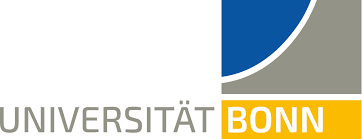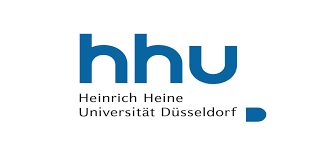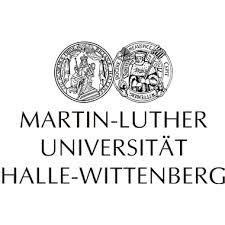Study Pharmacy in Germany: Top 6 Universities & English Programs

Contents
Quick Summary
Germany is one of the best countries to study Pharmacy, offering a mix of world-class education, practical lab training, and access to top pharmaceutical companies like Bayer and Merck. With low tuition fees at public universities and growing English-taught options, it’s a smart and affordable choice for international students.
Top universities for Pharmacy studies:
-
University of Bonn – M.Sc. Drug Research (English/German, no tuition fee)
-
Heinrich Heine University Düsseldorf – M.Sc. Industrial Pharmacy (English-taught)
-
Martin Luther University Halle-Wittenberg – M.Sc. Pharmaceutical & Industrial Biotechnology
-
Friedrich Schiller University Jena – M.Sc. Pharmaceutical Sciences
-
University of Göttingen – M.Sc. Cardiovascular Science
Degree options and career paths:
-
Bachelor’s & Staatsexamen: Foundation for becoming a licensed pharmacist in Germany
-
Master’s programs: Focus on clinical pharmacy, biotechnology, or drug development
-
Ph.D. & research paths: Careers in academia, R&D, or pharmaceutical innovation
💡 English-taught programs: Growing availability, especially at the master’s level; perfect for expats and international students.
🎯 Find your ideal Pharmacy degree in Germany
Take the Expatrio StudyBuddy All-in-One Quiz to get smart program recommendations based on your skills, interests, and city preferences. You can even filter for English-taught degrees and low-tuition universities to make your pharmacy journey in Germany truly seamless.
Whether you’re curious about how medicines work or want to improve people’s health, Germany is a great place to begin your pharmacy journey. You’ll study in top universities, gain practical skills in advanced labs, and enjoy life in a vibrant and multicultural country.
This guide will walk you through pharmacy studies in Germany and universities to study pharmacy, the study process, language options, and future career paths.
Int. Study Programs
Universities
Cities
Why Study Pharmacy in Germany?
Curious about what makes Germany such a promising place to study pharmacy? Why choose Germany over the US, the UK, or your home country? Let's dive into some of the top reasons:
- Germany is known for its high-quality education system. Many of its universities are among the best in the world.
- Compared to other countries, studying in Germany is quite affordable. Many public universities charge little or no tuition for international students.
- If you're interested in pharmacy research, you’ll find many chances to explore exciting and important projects. Universities often partner with top pharmaceutical companies, giving you access to cutting-edge labs and resources.
- Germany is home to some of the world's leading pharmaceutical companies such as Bayer and Merck. Studying here can provide you with unique internship and networking opportunities.
- The country is a popular destination for international students.
You’ll meet people from different countries and get to explore Germany’s beautiful cities, historic places, and nature.
English-Taught Courses in Pharmacy Offered for Expats
Good news for those who aren't quite fluent in German yet – studying pharmacy in Germany in English is possible! Many universities offer programs entirely in English, specifically designed for international students. Most bachelor’s programs in pharmacy are taught in German, but many master’s programs and special courses are available in English. Don't let language be a barrier to finding the perfect program for you in Germany!
| University | Master's program |
|---|---|
|
Friedrich Schiller University Jena
|
M.Sc. in Pharmaceutical Sciences
|
|
TU Bergakademie Freiberg
|
M.Sc. in Advanced Materials Analysis
|
|
University of Göttingen
|
M.Sc. in Cardiovascular Science
|
If you want to study Pharmacy in Germany but need to improve your German, you can join a language course. Many universities offer intensive German language courses to bring you up to the required proficiency level. These programs often include an introduction to academic German and specific terminology used in pharmacy and other sciences.
There are scholarships available for international students who want to study in Germany. Organizations such as the DAAD (German Academic Exchange Service) offer scholarships for programs taught in English. In addition, some universities have their own scholarship programs to support talented international students.
Top Universities for Studying Pharmacy in Germany
Overview of German Degrees in Pharmacy
Bachelor of Science (B.Sc.) in Pharmacy
A bachelor's degree in Pharmacy typically takes three to four years to complete. It teaches the basics of chemistry, biology, pharmacy, and related disciplines. However, in Germany Pharmacy is often part of a longer program that leads directly to the Staatsexamen (State Exam). If you’re still exploring academic options, you can browse other study programs in Germany to compare degree structures and career paths in different fields.
Master of Science (M.Sc.)in Pharmacy
In Germany, to become a licensed pharmacist, you must pass the state examination (Staatsexamen). This program combines undergraduate and graduate studies into a single, comprehensive curriculum. The Staatsexamen program usually takes about four years to complete, and it includes both theoretical and practical training.
Your pharmacy studies begin with subjects like chemistry, biology, and physics. As you go further, you’ll learn more about medicines, how they work, and how they’re made. You’ll also get plenty of practice in university labs and real pharmacies.
By the end of the second year, you’ll take your first big exam (Erstes Staatsexamen). After that, you’ll do a 1-year internship, usually split between a pharmacy and a research or industry setting. Then, you’ll take your second exam (Zweites Staatsexamen) and the third (Drittes Staatsexamen) to become a licensed pharmacist in Germany.
Career paths:
- Community pharmacist: Work in public pharmacies, dispensing medications and advising patients.
- Hospital pharmacist: Work in hospital settings, collaborating with medical teams to manage patient medications.
- Pharmaceutical industry: Roles in drug development, quality control, regulatory affairs and sales.
- Regulatory agencies: Positions within government agencies overseeing drug safety and regulations.
Master of Science (M.Sc.) in Pharmacy
For those who already have a B.Sc. in Pharmacy or a related field, the master's degree program offers advanced study in specific areas of pharmacy. Options include clinical pharmacy, pharmaceutical biotechnology, and drug research. These programs typically last 2 years.
Career paths:
- Clinical pharmacist: Specialized roles in hospitals and healthcare settings, focusing on patient care and medication management.
- Research scientist: Positions in academic or industry research, focusing on drug development and clinical trials.
- Regulatory affairs specialist: Ensuring compliance with drug regulations and laws in the pharmaceutical industry.
- Pharmaceutical consultant: Providing expert advice to healthcare institutions, government bodies, and pharmaceutical companies.
Ph.D. in Pharmacy
If you want to focus on a scientific career, you can get a doctorate (Ph.D.) in Pharmacy or a related field. It usually takes three to five years and you have to complete and defend an independent research thesis.
Career paths:
- Academic researcher/professor: Teaching and conducting research at universities and research institutions.
- Pharmaceutical research and development (R&D): Leading projects in drug discovery and development in the pharmaceutical industry.
- Biotech industry: Advanced roles in biotechnology companies focusing on innovative drug therapies and technologies.
- Scientific advisor/consultant: Providing high-level expertise to pharmaceutical companies, regulatory bodies, and research institutions.
Studying Pharmacy is just one of many academic opportunities in Germany. To learn more about the application process, costs, and student life, visit our Study in Germany hub.
Study Abroad: Pharmacy-Related Studies in Germany
Pharmaceutical Biotechnology
If you’re excited about how biotechnology can change healthcare, this program will give you the skills to be part of medical breakthroughs. You’ll help develop new treatments and medicines that could save lives.
You'll be involved in the development of new therapies and medicines that could potentially save lives.
- Curriculum: Includes modules on molecular biology, bioinformatics, genetic engineering, and bioprocess technology.
- Hands-on experience: Extensive lab work and research projects in collaboration with leading biotech companies.
- Career opportunities: Graduates can pursue careers in pharmaceutical companies, biotech firms, research institutions, and regulatory agencies.
Medicinal Chemistry
Medicinal Chemistry focuses on the development and optimization of drugs for medical applications. You'll be the innovator behind new treatments that can make a real difference in patients' lives. It combines knowledge from chemistry, pharmacy, and medicine.
- Curriculum: Includes courses on organic chemistry, drug design, molecular modeling, and pharmacodynamics.
- Research experience: Extensive lab work and research projects, often in collaboration with pharmaceutical companies.
- Career opportunities: Graduates can work in drug discovery and development, medicinal chemistry research, quality control, and regulatory affairs.
Pharmaceutical Engineering
Pharmaceutical Engineering focuses on how medicines are made. It combines chemical engineering and pharmacy to design and improve the way drugs are produced.
- Curriculum: Includes courses on process engineering, pharmaceutical technology, quality assurance, and regulatory compliance.
- Industry collaboration: Opportunities for internships and projects with leading pharmaceutical companies.
- Career opportunities: Graduates can work in pharmaceutical manufacturing, process development, quality control, and regulatory affairs.
FAQ
What are the language requirements to study Pharmacy in Germany?
Most Pharmacy programs, especially at the undergraduate level, are taught in German. So, it's important to be proficient in German. Here's what you typically need:
- TestDaF (Test Deutsch als Fremdsprache)
- DSH (Deutsche Sprachprüfung für den Hochschulzugang)
- Goethe-Zertifikat
Many master's programs and specialty courses are offered in English, making them accessible to international students. Here's what you'll need for these programs:
- IELTS (International English Language Testing System)
- TOEFL (Test of English as a Foreign Language)
- Cambridge English Qualifications
What are the visa requirements for Pharmacy students?
If you're from the EU, EEA or Switzerland, you don't need a visa. But if you're from outside these regions, you'll need one. There are two types: the Student Applicant Visa for those who haven't been admitted to a university yet and the Student Visa for those who have.
To get your visa, first get accepted to a German university. Then make an appointment at the German embassy or consulate in your home country. You'll need to prepare several documents: a completed visa application form, a valid passport, your university acceptance letter, proof of financial resources (such as a blocked account with approximately €11,904), proof of health insurance, academic records, a letter of motivation and proof of language proficiency.
After arriving in Germany, you must register with the local authorities and apply for a residence permit at the Ausländerbehörde within two weeks.
Can international students work in Germany post-graduation?
At the end of your studies, you can apply for an 18-month Job Seeker Visa to look for a job that's a good fit for your qualifications. During this period, you can work in any job to support yourself while you search for a position related to your field of study.
You can then apply for either an EU Blue Card or a work permit once you've found a job that matches your qualifications. The EU Blue Card is a great option for high-skilled workers and offers benefits like a faster path to permanent residency. To qualify, you generally need a job offer with a minimum salary of around € 56,800 per year. If you don’t qualify for the Blue Card, you can apply for a regular residence permit for employment. This means you need to have a job offer that matches your degree.
After working in Germany for a certain amount of time (usually 33 months with an EU Blue Card or 21 months if you have good German language skills), you can apply for a permanent residence permit, which allows you to live and work in Germany indefinitely.
This might also be of interest to you

Summer Semester in Germany: Your Complete Guide for April 2026 Intake
Thinking about studying in Germany but missed the October deadline? The summer semester might be your perfect opportunity. While most international...

Why More Indian Students Are Choosing Germany Over the USA
In the last decade, Germany has become one of the fastest-growing study destinations for Indian students. While the USA once dominated the dreams of...

Top Courses for Indian Students in Germany vs USA (2026 Guide)
Studying abroad is a dream for many Indian students, but choosing the right country and course can be confusing. The United States and Germany are...

5 Cheapest Countries to Study Abroad for Indian Students (2026 Guide)
Studying abroad doesn't have to drain ₹40-60 lakhs from your family's savings. Five countries offer world-class education for under ₹10 lakhs per...

Germany vs USA: Which Is Better for Indian Students in 2025?
Choosing where to study abroad is a big deal, especially for Indian students. You're not just picking a country; you're deciding to move far from...

Germany Welcomes Displaced Harvard Students: A New Academic Home
In a move that’s left thousands of students in shock, the U.S. government has revoked Harvard University’s certification to enroll international...









